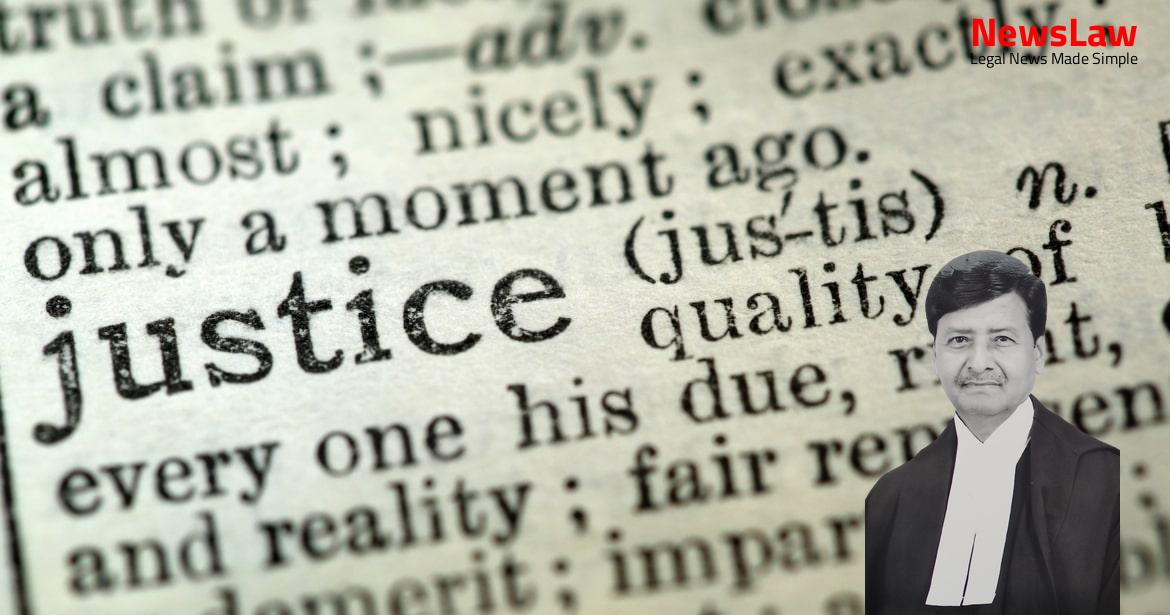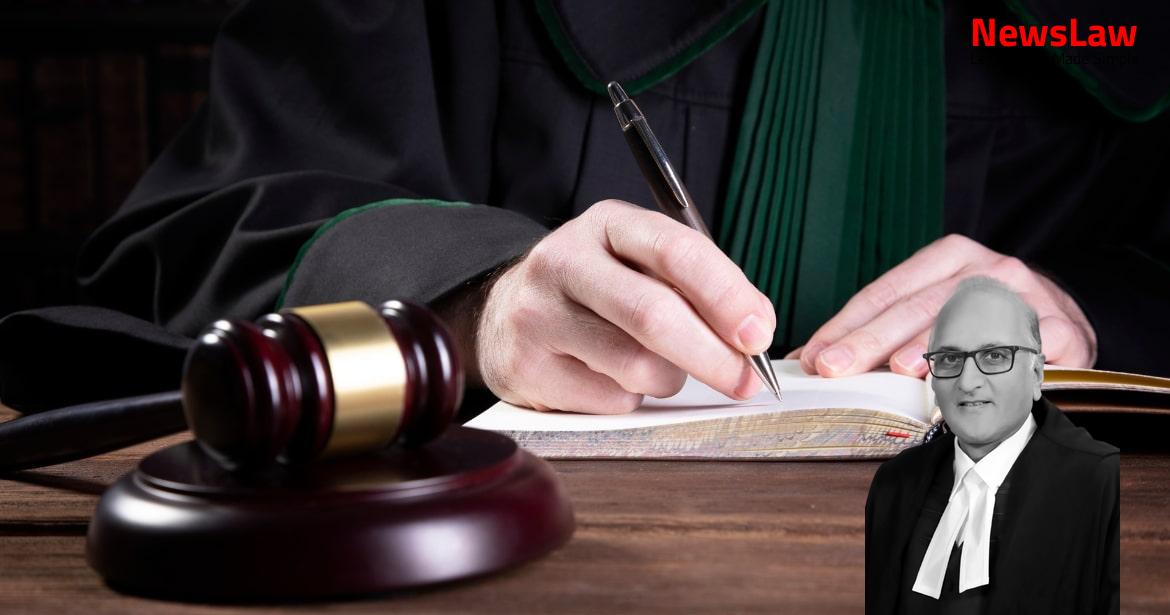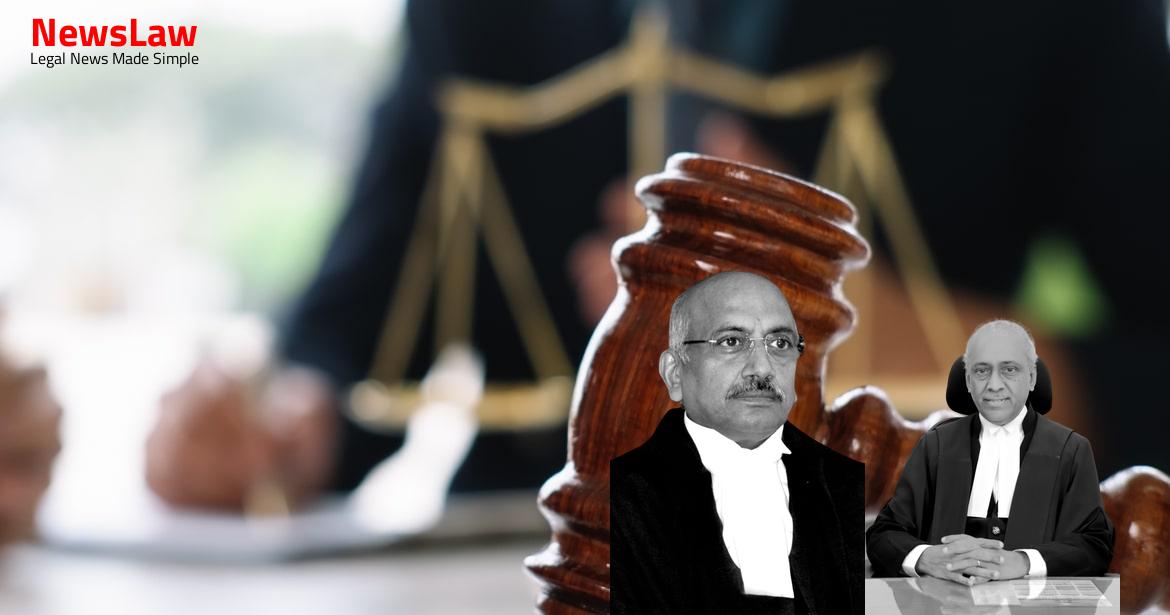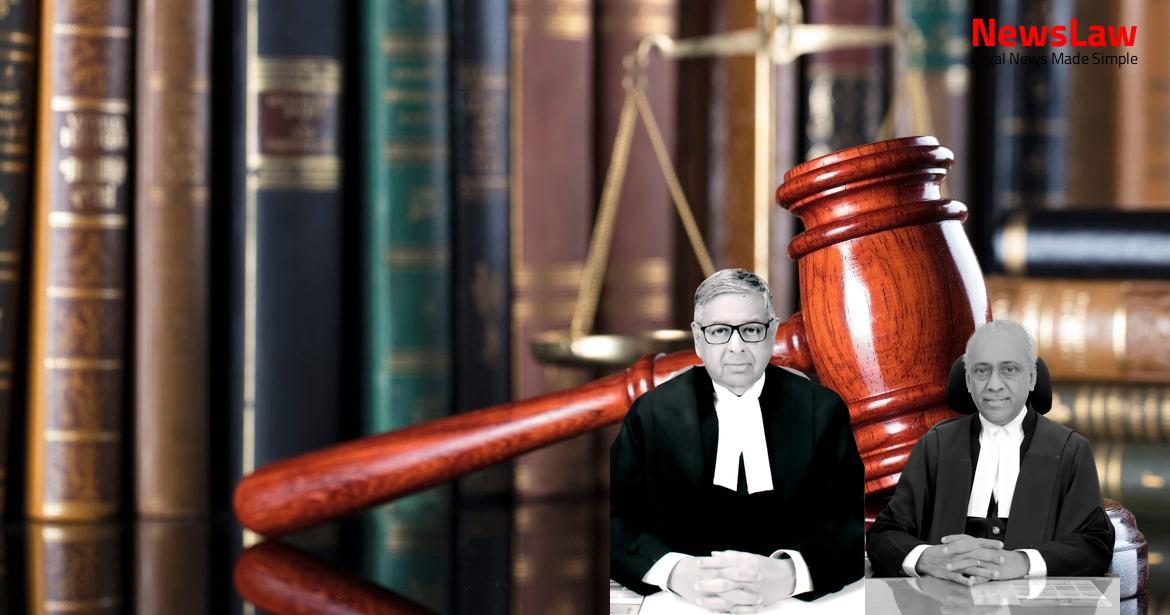In a recent judgment by the Supreme Court of India, the decision of the High Court of Calcutta in the land dispute case has been recalled for review. The case involves a longstanding dispute between the descendants of Kirodimull Lohariwala and other parties. Stay tuned for further insights into this intricate legal battle.
Facts
- Late Kirodimull Lohariwala objected to the sale of the property to V.N. Vasudeva, stating that no leave was obtained from the High Court of Calcutta.
- The objection was overruled by the Chief Commissioner, Delhi.
- Later developments, including the order of the High Court of Calcutta in RVW No 272 of 2012, were not brought to the notice of the Court.
- The grandchildren of Kirodimull Lohariwala, who constituted a H.U.F., filed a Title Suit and a Writ Petition to challenge the sale of the property.
- Correspondence between the Income Tax Department and Late Premchand Gupta took place regarding the property.
- The Writ Petition was dismissed by the Single Judge of the High Court, stating that alternative remedies were pursued by the petitioners.
- An appeal was then filed by the appellants against this dismissal.
- The High Court later allowed an application filed by the grandchildren of Lohariwala to recall the dismissal order and hear the matter on merits.
- The Division Bench of the High Court of Calcutta disposed of the appeal under its Order dated 17 August, 2001 without interfering with the order of recalling on review application dated 20 November, 1998.
- The appellants preferred SLP(C ) No 22491 of 2001 before the Supreme Court after the Order dated 17 August, 2001 was passed, which was dismissed at the motion stage on 10 January, 2002.
- The Single Judge of the High Court held that the miscellaneous application filed by the appellants in the disposed Writ Petition No. 18500(W) of 1985 was not maintainable as there was nothing pending before the Court.
- The appeal against the Single Judge’s Order dated 31 March, 2006 was dismissed on 19 October 2012 with liberty given to the respondents to file a fresh suit on the same cause of action in Delhi.
- The respondents filed a Review Application against the judgment dated 19 October, 2012 and the Order dated 31 March, 2006.
- The impugned order dated 24 September, 2014 reviewed the Order dated 19 October, 2012, set aside the Order dated 31 March, 2006, and directed Writ Petition No. 18500(W) of 1985 to be heard on its own merits.
Also Read: Judgment: Dispute Resolution in Infrastructure Contracts
Arguments
- Learned counsel argues that the review application by the respondents lacks the basic principles of law for maintainability.
- The High Court’s order under review did not point out any new and important matter, error apparent on the face of the record, or sufficient reason for a review.
- The respondents have a history of abusing the legal process for over 50 years concerning the subject property.
- The purpose of filing the Writ Petition No. 18500(W) of 1985 was to prevent the Income Tax Department from attaching and selling other properties in Calcutta.
- The detailed judgment of the Single Judge in 1990 addressed all grounds raised on merits and granted liberty to the respondents to raise questions in a pending suit in Delhi.
- Recalling the order of 26 October, 1990, under review jurisdiction would amount to an abuse of the legal process.
- The auction of the subject property was not confirmed, and there were discrepancies in the dealings between V.N. Vasudeva and Kirodimull Lohariwala.
- V.N. Vasudeva was criticized in a previous case for avoiding payment of rent to the Income Tax Officer.
- Writ Petition No. 18500(W) of 1985 filed by the respondents was decided on 26 October, 1990.
- Section 293 of the Income Tax Act, 1961 was not considered during the decision of the Single Judge in Writ Petition No. 18500(W) of 1985.
- The Title Suit No. 471 of 1985 was dismissed before the judgment dated 26 October, 1990.
- The High Court of Calcutta allowed a review of the decision, setting aside the previous judgment, and restored Writ Petition No. 18500(W) of 1985 to be heard on its merits.
- The basic principles for entertaining a review application were outlined citing the case of Kamlesh Verma.
Also Read: Supreme Court Judgment: SAIL vs. Ispat Khadan Janta Mazdoor Union
Analysis
- Review is not maintainable unless the material error, manifest on the face of the order, undermines its soundness or results in miscarriage of justice.
- The words ‘any other sufficient reason’ have been interpreted in Chhajju Ram v. Neki [(1921-22) 49 IA 144 and approved by this Court in Moran Mar Basselios Catholicos v. Most Rev. Mar Poulose Athanasius AIR 1954 SC 526 to mean ‘a reason sufficient on grounds at least analogous to those specified in the rule.’
- The same principles have been reiterated in Union of India v. Sandur Manganese & Iron Ores Ltd. (2013) 8 SCC 337.
- When the review will not be maintainable:
- 1. A repetition of old and overruled argument is not enough to reopen concluded adjudications.
- 2. Minor mistakes of inconsequential import.
- The judgment in review failed to consider the effect of Section 293 of the Income Tax Act and the consequential effect of the High Court’s order on an application by the Union of India in Civil Suit No 1451 of 1957.
- The Income Tax Department’s defense was that the auction sale held in August 1964 did not have permission from the Court, and the subsequent order in Suit No. 1451 of 1957 would impact the auction sale.
- The Single Judge of the High Court of Calcutta reserved judgment in Writ Petition No 18500(W) of 1985 in March/April 1986, but pronounced it on 26 October 1990, refraining from expressing an opinion on merits to avoid prejudicing the pending civil suit in the District Court, Delhi.
- Review is not maintainable when the same relief sought during the main hearing had been denied.
- The issues on merits raised in Writ Petition No. 18500(W) of 1985 before the High Court of Calcutta were not elaborated upon in the judgment.
- The High Court did not commit any error in passing the judgment dated 24 September, 2014 in its review jurisdiction.
- The civil suit was allegedly not maintainable under Section 293 of the Income Tax Act.
- This alleged defense was raised by the respondents and the Income Tax Department.
- The effects of the Order dated 8 September, 1965 were considered in this context.
- No party should be left without a remedy, regardless of the alleged defense raised.
- Grievances raised by any party before a court of law must be examined on their own merits.
Also Read: Dismissal Upheld in Disciplinary Proceedings of CISF Constable
Decision
- The observations made by the Court are only for the disposal of the present appeal
- The Writ Petition No 18500(w) of 1985 is to be decided by the High Court of Calcutta on its own merits
- The High Court is expected to give priority to the matter and decide the writ petition expeditiously
- The current appeal lacks merit and is dismissed with the aforementioned observations
- No costs are awarded in this case
- Any pending applications are disposed of
Case Title: SUNIL VASUDEVA Vs. SUNDER GUPTA .
Case Number: C.A. No.-005140-005140 / 2019



